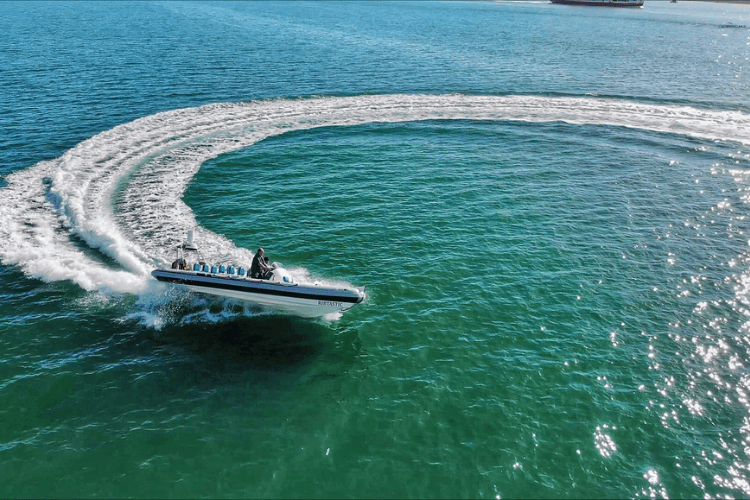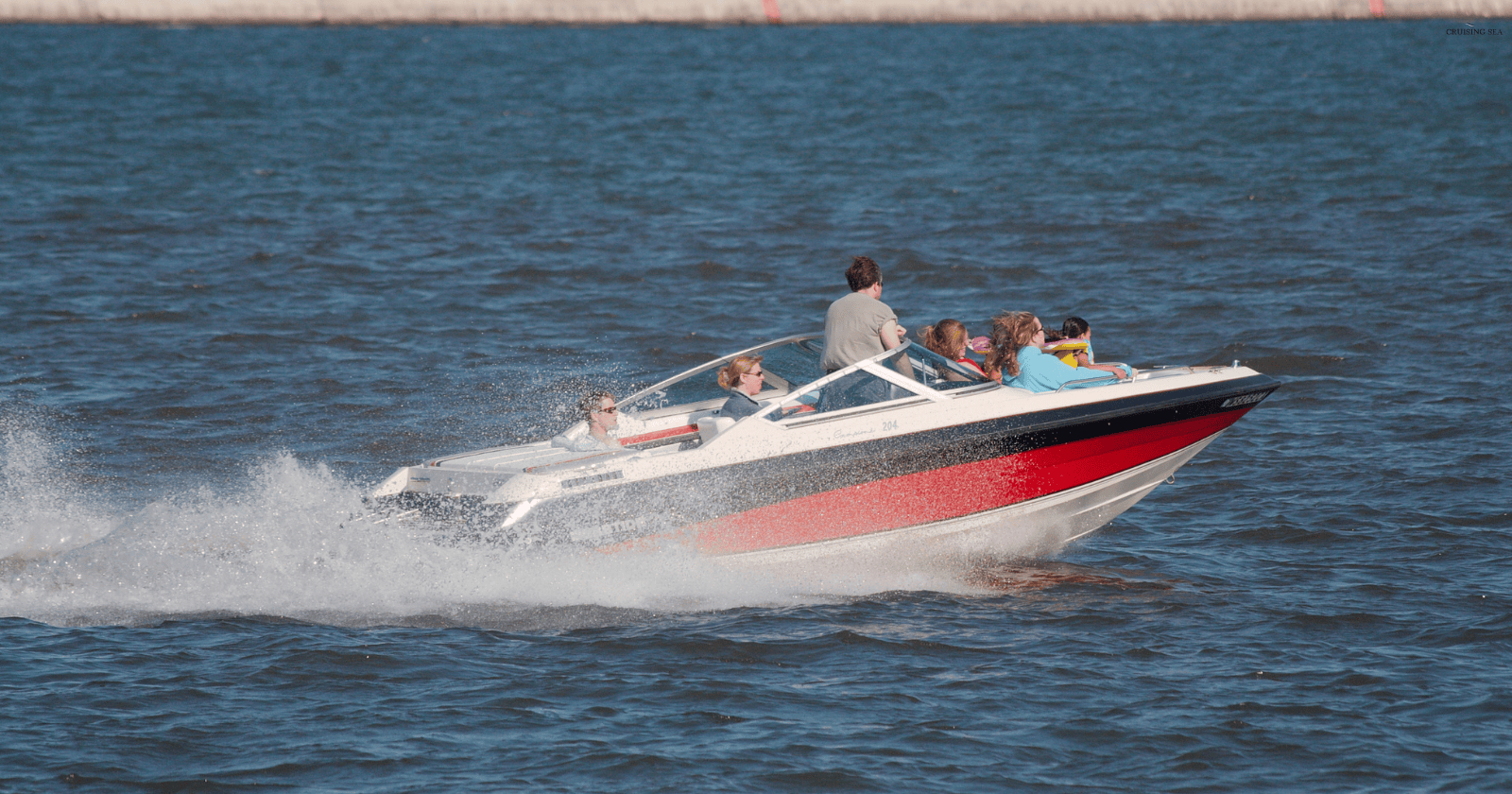Dreaming of more speed on the water? If so, you might be wondering, “Can you overpower a boat?” The short answer is yes, you can – but it’s not that simple. Before you rev up that engine, there’s a lot to consider.
What are the risks? Will your boat handle the extra power without damage? And what about the legal side – could you face fines or worse? Don’t forget about insurance; will your policy still cover you if you’ve souped up your vessel?
Safety is another big concern. More power doesn’t always mean more fun, especially if it puts you and your passengers at risk.
Before you make any changes, it’s worth diving into these questions to ensure your boating adventures stay exciting and trouble-free.
What is Overpower a Boat?
Overpowering a boat means using an engine that’s too strong for the vessel’s design or size. For example, putting a 200-horsepower engine on a small boat meant for 50-horsepower is overpowering. The consequence? It can make the boat hard to handle, put you and your passengers in danger, or even damage it. So, why take the risk?
Where to Find Your Boat’s Maximum Horsepower Rating?
Your boat has a maximum horsepower rating. You’ll find this on the capacity plate, which is usually located near the helm or on the transom. Note that not all boats have a capacity plate.
For instance, according to Boat ED, personal watercraft (PWC) and sailboats are generally exempt from the federal requirement to have a capacity plate.
On the other hand, if you have a monohull boat that is less than 20 feet in length, equipped with an inboard, outboard, or stern drive engine, and built after 1972, it must have a capacity plate. The plate looks like this:
| U.S. COAST GUARD CAPACITY INFORMATION |
|---|
| MAXIMUM PERSONS: 4 or 650 LBS |
| MAXIMUM WEIGHT: 1400 LBS |
| MAXIMUM HORSEPOWER: 90 HP |
Is it Legal to Overpower a Boat?
It depends, In some places, it’s legal to overpower a boat, and in others, it’s against the law. For example, in Utah, Canada, Australia, EU countries, and Florida, it’s illegal.
On the other hand, in Washington, UK, New Zealand, Oregon, or California, you won’t find specific laws against overpowering.
There’s no federal law against it either. Some states have specific rules too. So, it would be best to check your local boating laws before changing your engine. You might need to register a new motor with the state.
Regarding fines, you maybe won’t be ticketed by the Coast Guard (not sure about it) if they catch you with an overpowered boat unless you drive recklessly. But, state or local law enforcement might ticket you for overpowering your boat.
Dangers of Overpowering a Boat?

Overpowering your boat can lead to a whole bunch of problems on the water. For starters, it messes with how your boat handles. Your boat might sit too low at the back, making it wobble like crazy, especially when you’re turning or in choppy water.
This instability isn’t just annoying; it’s downright dangerous. You could end up flipping over or struggling to avoid crashes because you can’t control your speed.
Plus, the heavy weight of the motor in the back might cause waves to wash over the sides, filling your boat with water – definitely not a fun day at the lake!
And let’s not forget the stress on your boat’s structure. Over time, all that extra power can damage the hull or other parts, potentially leading to leaks or even your boat breaking apart while you’re out there.
So, while it might be tempting to soup up your boat with a bigger engine, it’s really not worth the risk to you, your passengers, or your beloved boat.
Overpowered: Are You Covered?
Your boat insurance might not cover you if you overpower your vessel. Many policies have rules about following the manufacturer’s specs. If you ignore these, you could be out of luck if something goes wrong.
Insurance companies might raise your rates or drop your coverage if they find out you’ve put on a too-big motor. They see it as a big risk.
If you get involved in an accident with an overpowered boat, your claim might be denied. This leaves you on the hook for all the costs of repairs or injuries.
So, check with your insurer before overpowering your boat. They can tell you how it might affect your coverage and costs.
Underpowered vs. Overpowered Boats?
Underpowered boats
Underpowering means that the boat is equipped with an engine that has less horsepower than the manufacturer’s recommended minimum. This also causes some problems.
For instance, It’ll struggle to get on plane, burning more fuel while crawling along inefficiently.
In choppy waters or strong currents, you might find yourself fighting just to make headway, which can be dangerous in emergency situations. The engine will strain constantly, potentially leading to overheating and increased wear.
You’ll also likely have to limit passengers or cargo to compensate for the lack of oomph.
Overpowered boats
On the flip side, overpowered boats are like strapping a rocket to a skateboard.
Sure, you’ll get speed, but at what cost? Control becomes a nightmare, especially in tight spots or rough conditions.
As mentioned previously, you’re more likely to swamp the boat, flip over, or zoom past that perfect fishing spot before you can say “Cut the engine.”
Plus, that extra power guzzles gas like there’s no tomorrow. Both extremes can be unsafe and frustrating.
In short, both underpowered and overpowered boats aren’t the ideal option.
The Environmental Cost of Overpowering
Overpowered boats pack a hefty environmental punch. They’re gas-guzzlers, pumping out more emissions and risking fuel spills that harm water quality. The noise disrupts wildlife, messing with fish and critter behavior.
Those big wakes? They erode shorelines and damage habitats. Fast boats also up the risk of collisions with marine life like manatees and sea turtles. Don’t forget the bigger carbon footprint from all that extra fuel.
Bottom line: overpowering a boat can impact the environment big time. So, maybe, you might want to think about it.
Will Overpowering a Boat Affect Resale Value?
It depends. Overpowering a boat can be a bit tricky when it comes to selling. In some cases, it might not be a big deal, but in others, it could make selling harder.
For example, some buyers might worry about damage to the boat from too much power. They might think the transom or hull could be strained. Plus, they might be concerned about extra wear from going faster than the boat was meant to.
Insurance can be an issue too. Generally, overpowering voids insurance coverage. This could be a turn-off for buyers who want to make sure they can insure the boat.
As for regulations, it’s a mixed bag. Some places have strict rules about boat power, while others don’t. Buyers might be hesitant if they’re not sure about the legal stuff in their area.
Maintenance is another thing to consider. An overpowered boat might need more repairs or upkeep. This could make some buyers think twice about paying top dollar.
In the end, while overpowering might make a boat more exciting, it could limit your pool of potential buyers. Some folks might love the extra power, but others might see it as more trouble than it’s worth.
Final Words!
To wrap it up, yes, you can put a bigger engine on your boat, but it’s not a good idea. There are lots of problems that can come with it. As already mentioned in the article, but in case you haven’t read it, I say it again, you might get in trouble with the law, have issues with your insurance, or even put yourself and others in danger. It’s also not great for the environment.
So, before you change anything on your boat, it’s really important to think it through carefully. Check what the local rules say, talk to your insurance company, and always put safety first – for you, your friends and family on the boat, and the fish and animals in the water.
Want more tips?
Subscribe to Cruising Sea newsletter to receive every two-week the latest post straight to your inbox!

Daniella has been passionate about travel, the sea, and nature for many years. As a child, she frequently traveled throughout the Mediterranean and continued with her journeys throughout her adult life.
Her experiences have created the desire within her to share her love for traveling with other passionate and adventurers who want to discover beautiful horizons and new cultures.

